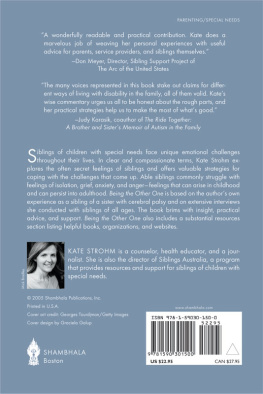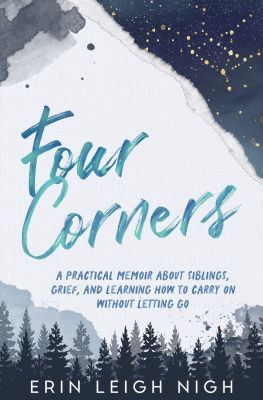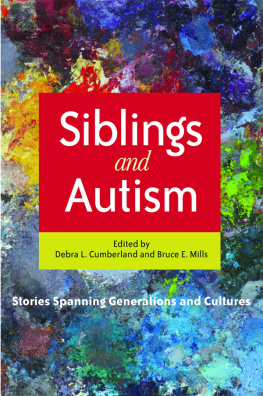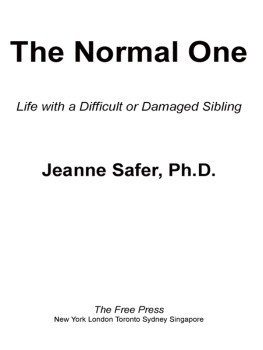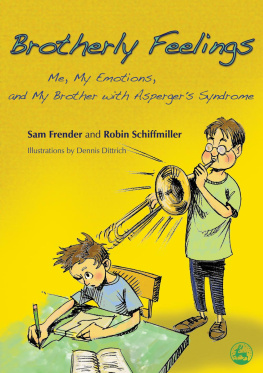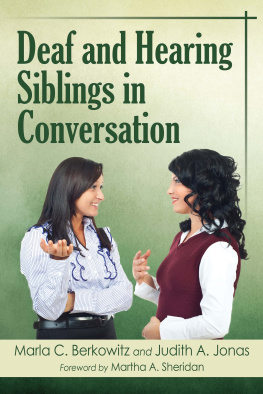Sign up to receive news and special offers from Shambhala Publications.

Or visit us online to sign up at shambhala.com/eshambhala.
BEING THE OTHER ONE
GROWING UP WITH A BROTHER OR SISTER WHO HAS SPECIAL NEEDS
KATE STROHM

SHAMBHALA
Boulder
2017
Shambhala Publications, Inc.
4720 Walnut Street
Boulder, Colorado 80301
www.shambhala.com
2002, 2005 by Kate Strohm
Originally published under the title Siblings: Brothers and Sisters of Children with Special Needs.
Published by arrangement with Wakefield Press, Australia. All rights reserved. No part of this book may be reproduced in any form or by any means, electronic or mechanical, including photocopying, recording, or by any information storage and retrieval system, without permission in writing from the publisher.
Cover art credit: Georges Tourdjman/Getty Images
Cover design by Graciela Galup
Library of Congress Cataloging-in-Publication Data Strohm, Kate.
Being the other one: growing up with a brother or sister who has special needs / Kate Strohm.1st Shambhala ed.
p. cm.
Includes index.
eISBN 9780834823396
ISBN 9781590301500
1. Children with disabilitiesFamily relationships. 2. Brothers and sisters. I. Title.
HQ773.6.s77 2005
306.875dc22
2004016691
For Helennext time,
together, you and I
will sing and dance
with the fairies.
Give sorrow words; the grief that does not speak knits up the overwrought heart and bids it break.
WILLIAM SHAKESPEARE, Macbeth
A S A CHILD I HAD A RECURRENT DREAM IN which I was sitting on a concrete slab in the middle of a rough ocean. The slab reached down to the ocean floor, like a huge pylon, but was very small in area. I didnt have much room to move.
Many years later the dream revisited me, and this time its message was clearer. I had been closely exploring my experience of being a sibling of someone with a disability and was starting to unravel a whole range of mixed feelings. Although it had been more than thirty years since the dream was a regular feature of my nighttime imaginings, it felt instantly familiar. It seemed to say that although I had a true sense of belonging as a child, with deep connections to a loving family, I also felt alone and afraid.
Feelings of isolation and fear had been a part of my life for as long as I could remember, even though they were not apparent to people around me. Outwardly, I appeared confident and successful. In fact, in my thirties I was becoming a household name on South Australian radio station SA.FM and its network around Australia. At the same time, another side of me struggled with fear and panic, and a large part of my life was spent escaping what were for me difficult situations, socially and at work.
Another ten years passed before I started to understand this other side of me. Through talking with other siblings of a brother or sister with special needs, reading and seeking help through therapy, I started to uncover the secrets I had been hiding, especially from myself. I discovered a vast amount of literature on the concerns of children who grow up with a brother or sister with special needs. I talked to a host of siblings and found out I was not alone. Others were experiencing similar feelings and confusion. These discussions were the impetus for writing this book.
During a trip to the United States in 1998, I had contact with a number of siblings and people involved with sibling programs. I decided to set up a program in Australia. The Sibling Project, based in the Department of Psychological Medicine at the Womens and Childrens Hospital in Adelaide, Australia, has become a thriving national program. It provides direct services to families, both parents and siblings, and also works closely with service providers to improve the support given to families.
WHO SHOULD READ THIS BOOK?
The purpose of this book is to raise awareness of sibling issues, give siblings a voice, and outline a range of strategies to help siblings become stronger. The information contained here is based essentially on the personal reflections of families and, in particular, siblings, together with extensive research of international material on sibling issues.
As a sibling you will read this book and discover that you are not alone in your experiences and feelings; that growing up with a brother or sister with special needs has shaped who you are and how you operate in the world.
Through their relationships with their brothers and sisters, children learn to express emotions and feelings such as love, loyalty, anger, and rivalry. They gain companionship and support and learn to give and take. Siblings help teach each other social skills and play a part in each others identity development. When one sibling has special needs, some aspects of the relationship can change enormously.
Until now most of the stories we have heard from siblings reflect a positive experience, because those are the easy stories to tell. It seems they are the only stories that society wants to hear. But as you will read here, that is not the reality for many. Not everyone gains inspiration or feels especially blessed by having a brother or sister with special needs. It is often difficult to be honest when our culture tells us constantly that we must be brave or cheerful. The most helpful thing in my own journey of acceptance was hearing others express mixed feelings that were similar to my own.
As a parent reading this book, you will understand more fully the concerns of your able children and how you can support them. Through that awareness you will feel more competent as a parent and will be able to help your whole family to be stronger and more supportive of one another.
Many of the examples I cite focus on the difficulties siblings face. Many of the experiences reflect some criticism of the way parents handle certain situations. I dont include these to add to any self-doubt or guilt you might feel as a parent. Most siblings recognize the burden their parents carry. Parents rarely receive the support they need in the early stages of adjustment. To explore and learn from these situations, however, it is necessary to look at these stories.
At times you may feel overwhelmed, trying to meet the needs of all the members of your family while still struggling with your own mixed feelings of grief and acceptance. I do not wish to alarm you. Children can be resilient and often need very little in order to adjust positively. If you understand that siblings within your family are facing particular difficulties, both you and all your children can benefit. With support, parents are usually able to regain a sense of control over their lives, hope for the future, and renewed self-confidence. At the same time, you can help your children adjust and grow from their experience.
As a practitioner working with families that include a child with special needs, this book will help you more fully understand the concerns of siblings and how they can best be supported.
It took me more than thirty years to find a professional who could help me make some sense of my own confused feelings. Things have come a long way in terms of disability acceptance and understanding the effects on families, but there is still a way to go. Through my work with the Sibling Project, I see young children who struggle with their family situation and who have had no support to deal with their difficulties. I have contact with practitioners who have little understanding of sibling issues.
Next page
